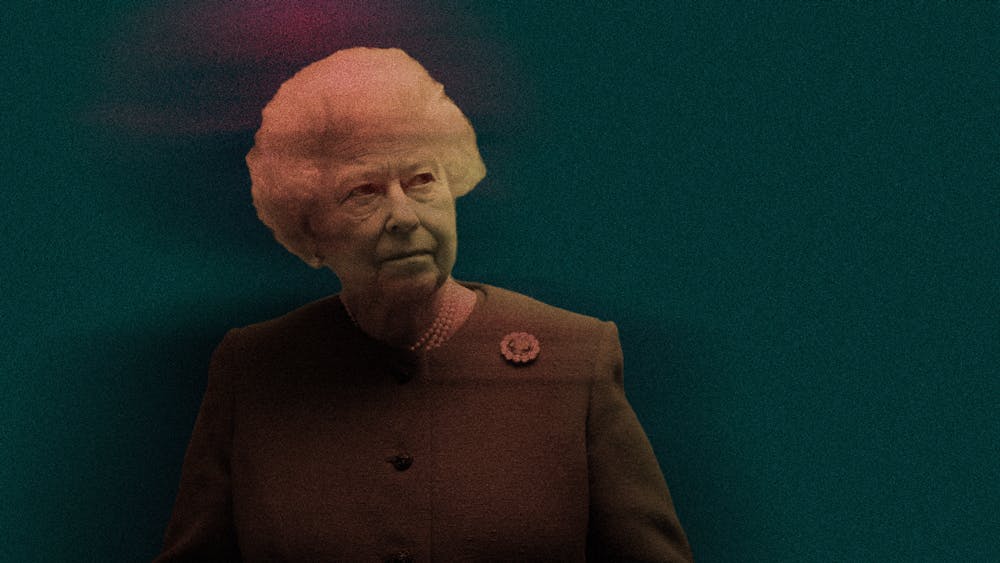When the news of Queen Elizabeth II’s death broke, I, along with Brits everywhere and seemingly half of the rest of the world, was rendered suddenly and surprisingly silent. The pre-planned obituaries and messages rolled out, sure, but in the moment, most of us were left stumped as we considered for the last time what the Queen really meant to us. The truth is, she represented so much more than a face on a throne. She was present on everyone’s TVs in her annual Christmas Day speech, and her memory lives all the way down to the few pound coins I still carry around in my pocket (just in case I need them — you never know), she was an untouchable leader and global icon.
But while the Queen is someone who I was proud to have representing me, her death has once again led me to reconsider my feelings on the Royals as a whole. Unfortunately, while they’re the cultural and diplomatic faces of the country, the ruling royal family is ultimately a deeply problematic institution that continues to represent the U.K.’s past of abuse of power, both domestically and abroad. There are, of course, the scandals, which are far too pervasive to ignore: There’s Prince Philip (the Queen’s late husband)’s well-documented racist and sexist remarks, or Prince Andrew (her son)’s all-but-admitted grooming of a 17-year-old girl (did I mention one of his friends being a certain Jeffrey Epstein?), and of course, Princess Diana, a woman who was manipulated into falling in love with the whole family before being tossed aside with no remark about her convenient death once she’d produced an heir — even after she had become more adored than the rest of them put together.
But while what they do can be a serious issue, it’s more what they represent that’s the problem. They were, after all, once called the “Imperial Family" — their continued rule over much of the Commonwealth serves less as a signal of friendship, and more as a reminder of who used to be the colonisers versus who used to be the colonised. The worldwide power and renown they’ve gained is far from a product of Elizabeth’s good grace and manners; rather, it is a legacy of an Empire that brutally oppressed millions of people for hundreds of years (many Northern Irish and fellow Scottish people would argue that this oppression continues to this day, but I digress). That past is something that we have to atone for; however, the Windsors’ dominion only serves to perpetuate it. The protests surrounding Will and Kate’s recent visit to Jamaica and Belize showed that their so-called “subjects” are growing less and less patient with their presence. With Elizabeth’s death bringing her less-than-popular son Charles to the throne, I think that it’s time that the U.K. had a serious reckoning with who we want to be and how we want to present ourselves to the world.
These reflections aren’t unique to the U.K., however; I knew I’d be encountering a similar sense of a problematic institutional past long before I actually got to Penn. A few months after I settled into my place here, a good friend of mine sent me an Instagram page called @segregation_by_design. They were doing a series on the forced upheaval of the Black Bottom, the thriving 78% Black neighbourhood, which Penn worked with the authorities to clear out in order to make space for University City.
The legacy of this societal damage sadly continues today with the push for the removal of the UC Townhomes, one of the last remnants of the Black Bottom, as residents are once again being forced out of their homes with little notice and nowhere else to go. The University, meanwhile, which has billions of dollars in wealth and continues to benefit from the dismantling of that community, is silently sitting and watching. Penn has been given the chance to come to terms with and begin to fix the historic wrongs on which it was established by stepping in and saving the townhomes; this would help to stop the past from repeating itself. Unlike my Royal Family, who I know full well to be incapable of such fundamental change, I hope the choice that our University makes is the right one.
Just as the U.K. owes atonement to the rest of the Commonwealth, Penn owes the protection of the UC Townhomes to its community in West Philadelphia. We all have the opportunity to choose the type of institutions we want to be: ones that ignore, and in doing so, perpetuate the sins of our past, or ones that work with those we’ve wronged to build a better future. Though I loved Elizabeth in many ways, I doubt the latter is what she would have wanted; however, I know that it is what Diana would have. I’m sure you can guess who the Queen of my heart truly was.
ALEX BAXTER is a junior exchange student from the University of Edinburgh studying politics, philosophy and economics. His email is ajgb@sas.upenn.edu.









